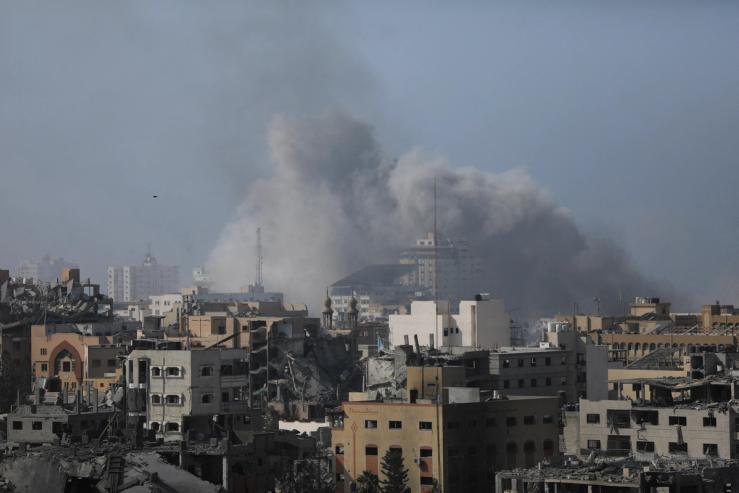The News
As Israel intensifies its attack on the Gaza Strip and the enclave’s humanitarian situation deteriorates, questions are growing over the Israeli army’s war strategy.
Since Hamas’ attack on Israel on Oct. 7, Israel’s ground, air, and naval forces have reportedly struck 15,000 Hamas targets in Gaza, including command centers and tunnels. Israel Defense Forces officials say they have killed dozens of Hamas’ leadership and operatives, but have not yet killed their top named Hamas targets.
In Gaza, the fighting has killed more than 11,000 people, according to the enclave’s officials, and the United Nations has called the situation a “crisis of humanity.”
Amid mounting global calls for a ceasefire, Israeli authorities have accused Hamas of using civilians as shields as they seek the release of around 240 people taken hostage in last month’s attack.
Analysts are asking if the Israeli military needs to rethink its approach.
SIGNALS
Israel must destroy Hamas’ tunnel network, Daphné Richemond-Barak, a professor at Israel’s Reichman University, argues in Foreign Affairs. She says that goal is as important as destroying the militant group’s chain of command. “By using civilians, hospitals, and schools to shield itself from attack, Hamas has committed war crimes, certainly; but it has also made it that much more difficult for Israel to achieve substantial military gains,” she wrote.
Israel needs legitimacy to continue its war, but its bifurcation strategy — pushing residents in the north of the Gaza Strip down south — has been criticized by experts as effectively depopulating the enclave. Israel has justified the move as a way to isolate Hamas’ leadership in the north, and last week agreed to daily four-hour pauses in fighting to allow civilians to move safely. But many civilians may not want to leave their homes, and those who do may not be able to because of a lack of fuel or transport. “Israel’s military strategy is less focused on how to take out Hamas, but more about a bigger structural approach to bring the whole situation — Gaza — to its knees,” Mairav Zonszein, a senior analyst at the International Crisis Group in Tel Aviv, said in an interview with Semafor. “Having control over the north and making it unlivable gives them control.”
Israel should undertake twin strategies to win over regional and global public opinion and ensure Hamas’ defeat, neither of which is military, Jon B. Alderman from the Center for Strategic and International Studies wrote. The first is to withdraw from Gaza and collaborate with Arab states to rebuild the enclave, while convincing the Palestinian Authority that a stable Gaza is possible if they have a role in it. The second is to ensure that Palestinian solidarity is separated from Hamas. Alderman’s suggestions may be hard to achieve: Over the past few days, Israeli Prime Minister Benjamin Netanyahu has said Israel will have an indefinite “security role” in Gaza and has rejected the idea that the Palestinian Authority would play a part in governing the enclave.
Israel needs to adopt a longer-term view, argues one expert. Raphael S. Cohen, a senior political scientist at RAND, describes Israel’s current military strategy as “mowing the grass” — killing members of Hamas along with “some number of civilians” as “buying at best a few years of relative peace and fueling further long-term radicalization.” Throughout the past decade and a half, Israel believed that it was weakening Hamas, he said, but the Oct. 7 attack exposed Israel’s complacency and showed that Gaza — a densely packed area with no safety valve — was bound to explode. “Once all the killing is done, Israel will have to do something even harder if it’s to have any hope of preventing the next war ... it will need to rebuild Gaza into something better than it was.”


